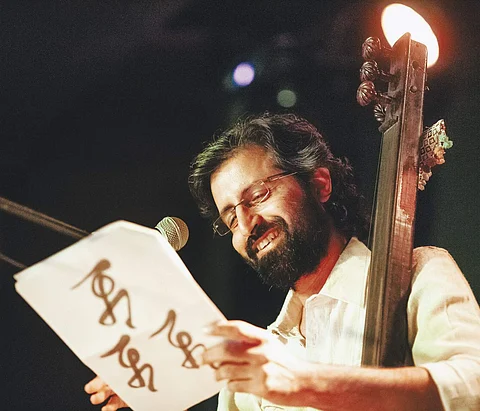

BENGALURU: Noted as a direct emanation of Rumi's spirituality in South Asia, Sindhi Sufi poet Shah Abdul Latif Bhitai’s works are celebrated on both sides of the Indo-Pak border.
While you may be well acquainted with Rumi thanks to his popular quotes that thrive on Facebook pages – The Artidote and Berlin ArtParasites – what about the 18th century Sufi poet whose works molded the beauty of Sufi and Yogic strengths into one?

Vipul Rikhi, a poet from Bengaluru, aims to bring the works of Shah Latif to popular culture. “Latif's poetry is intense and uncompromising. He speaks often about cutting off the head, taking the plunge, diving in, or setting out with no support. This drew me in,” says the writer, translator and singer.
Shah Latif often spoke in the voices of women characters from the famous love legends of the Sindh-Punjab region – Sasui-Punhoon, Sohini-Mahiwal, Umar-Marui, and others, says Vipul. Each story is invested with a deep spiritual charge and significance, and Latif picks up iconic moments from the stories, such as Sohini stepping into the river or Sasui setting off into the desert, to express larger truths, adds the 39-year-old.
With the Kabir Project, Vipul was introduced to Latif's poetry in Kutch during the team’s research in the oral folk traditions of the region. He is currently finishing a book on the poetry and philosophy of Shah Latif, co-authored with Shabnam Virmani. “Latif was first presented in Bengaluru in 2010 by Kabir Project with folk singers from Kutch singing these songs,” says Vipul.
Since then the team has been sharing the stories, their interpretations, and translations of his poetry in English, done by Vipul and Shabnam.
Vipul’s work with Kabir Project includes extensive writings and translations in the field of Bhakti, Sufi and Baul poetry. During his performances, satsang sessions and in his Soundcloud recordings, Vipul presents poetry and explains its resonance in everyday doings, identifying the beauty and simplicity of folk tunes.
He and his team has performed in Mumbai, Bengaluru and in Lahore at the Lahore University of Management, in Pakistan. He recently performed at The Humming Tree, in the city. “People are struck by the power of Latif's poems and ideas, and its intensity of images,” he says.
Vipul grew up in Delhi, completed his Masters in English literature from Delhi University and has been residing in Bengaluru since 2012. In 2010-11 he was a fellow for literature at the Akademie Schloss Solitude in Germany.
He vouches for the survival of ancient literature. “Bhakti and Sufi poetry, such as that by Kabir or Shah Latif, has been alive for hundreds of years, in a flowing, ongoing oral folk tradition,” he says.
But how relevant does he think is 18th century Sufi poetry to the times of today? It still speaks to an every day person as it did when it was composed, says Vipul. “Because it speaks of subjects which have a timeless human relevance - what is the purpose of human existence, what does it mean to live well and what is it to love,” adds Vipul.
Several youngsters are drawn to the music and poetry of Kabir and Latif, observes Vipul. “Perhaps because it is a kind of voice that they have not heard before but it is one that they can relate to,” he reasons.